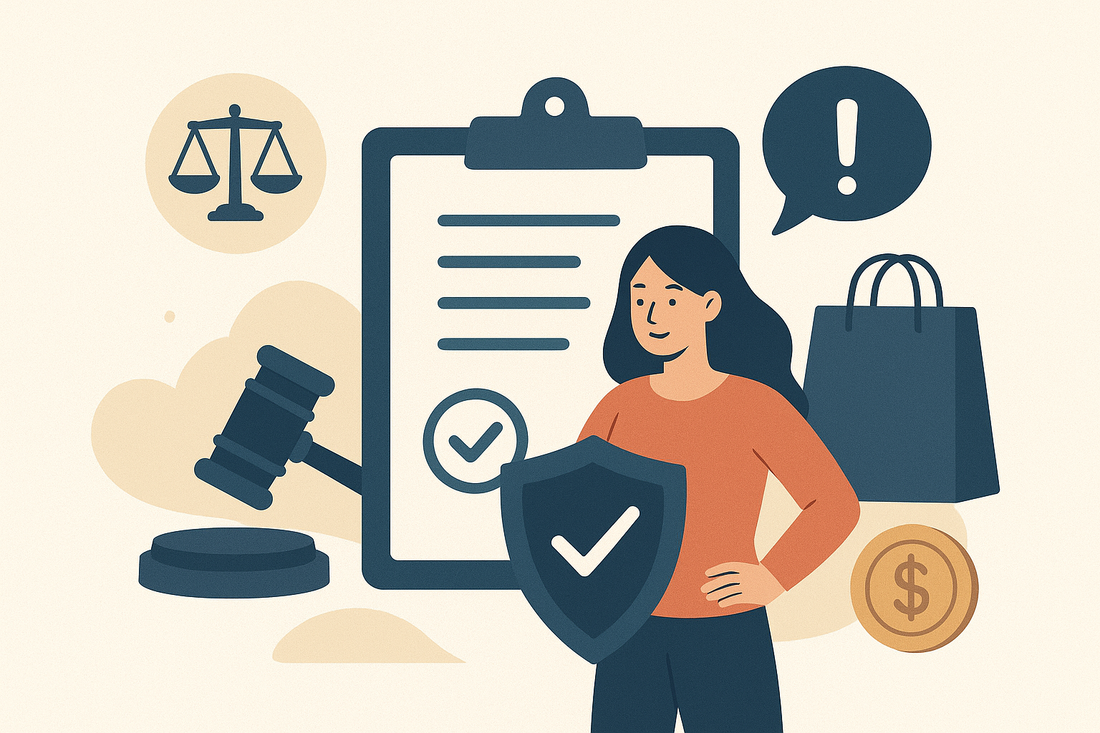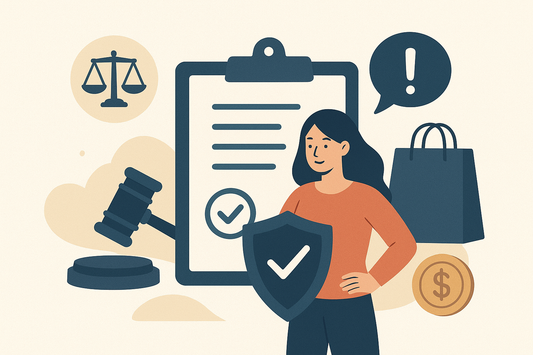
Consumer Rights: A Complete Guide to Protecting Yourself When Shopping Online and In-Person
Givi TechnologyShare
Consumer Rights: What You Need to Know to Protect Yourself
Learn to defend your rights in an increasingly complex and digitalized market.
Introduction
In a world where shopping is done with a single click, knowing your rights as a consumer is more important than ever. The digitalization of the marketplace has brought convenience, but also new risks.
This article will guide you through fundamental consumer rights, strategies to protect yourself when purchasing digital products, how to file effective complaints, and tools to prevent fraud.

1. Basic consumer rights
Consumers have fundamental rights that protect their interests in any transaction. These include:
Right to information
Receive clear details about products, prices, conditions, and warranties.
Right to quality
Demand that products meet the promised specifications.
Right to protection
Defend yourself against misleading advertising and abusive business practices.

2. How to protect yourself when making digital purchases
Online shopping is convenient, but it can also be risky. Follow these tips to protect yourself:
Check the seller's reputation
Check reviews and ratings before purchasing.
Use secure payment methods
Avoid sharing bank details directly; use trusted platforms.
Read return policies
Make sure you understand how to proceed if the product does not meet your expectations.

3. How to file effective claims
If something goes wrong, it's important to know what to do. Here's how to file a complaint effectively:
Contact the seller
Communicate the problem clearly and request a solution.
Use official platforms
File your complaint with agencies such as Attorney General's Offices or Consumer Protection Agencies.
Be persistent
Don't give up if you don't get an immediate response.

4. How to avoid fraud and scams
Frauds are becoming more sophisticated. Here's how to protect yourself:
Be wary of offers that are too good
If something seems too good to be true, it probably is.
Do not share personal data
Avoid providing sensitive information on unsecured sites.
Check the URL
Make sure the website is legitimate before purchasing.

5. Useful resources and tools
There are tools and platforms that can help you protect your rights as a consumer:
Comparison apps
Compare prices and features before buying.
Claims platforms
Use official sites to file complaints and claims.
Legal guides
Consult legal resources to understand your rights.

Conclusion
Knowing and exercising your rights as a consumer is essential in an increasingly digital market. Information is your best ally for making informed decisions and protecting yourself from abusive practices.
Remember that, as a consumer, you have the power to demand quality, transparency, and fairness in every transaction. Don't hesitate to stand up for your rights!




